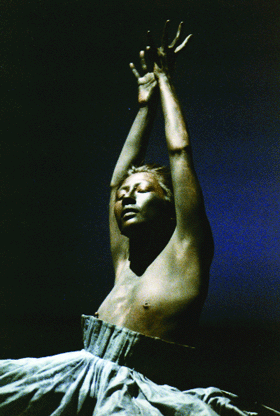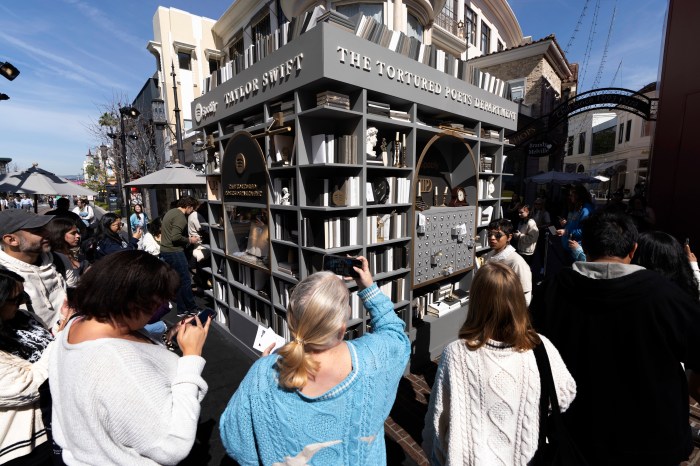Transculturation weighed down by choreographer’s pretension
Confusion and pretension were doled out in equal portions at the Japan Society in Akemi Takeya’s “BODYPOEMS,” November 4 and 5. The piece consisted of five separate dance vignettes, each performed by Takeya with the accompaniment of electronic musician Marc Weiser. The poems being with those that are the most pointless, a sort of introduction in which Takeya moves her body mechanically out of a sedentary position into a frenzy of mechanical movement—picture an alcoholic doing “the robot”—and then into a more traditional modern dance form. Further poems follow Takeya’s transformation from an old hag to an old woman you might see walking her dogs on the Upper East Side. If the vignettes get neither more coherent nor relevant as they progress, at least they get less frantic.
Takeya, a Japanese-born artist now working in Austria, endeavors to comment on Japan with her artwork, but also attempts a sort of pan-culturalism in accordance with her own layered identity. In one of her poems, she tries to iconize the image of the baseball pitcher, a figure that has a shared history in Japan and America. However, her effort here, perhaps her most admirable, is overshadowed by the need to make her dance into exposition, complicating it with her “post-Butoh” roots. What could have been an example of movement transculturation was lost in the miasma of Takeya’s pretension.
According to the program, Jean Cocteau, cited as a French poet, inspired the five “BODYPOEMS.” Calling Cocteau a poet instead of a filmmaker is like calling DaVinci an illustrator; in any case, the poetry of this piece is lost by the complication of its own form. Most of the credit for the bearableness of the evening should be given to Weiser, whose inventive sound backgrounds play an Atlas-like roll in propping up the evening, but in the end cannot bear the burden.
The final piece of the evening exemplified the problems with which the evening unfolded. The piece, a sort of sine qua non of topless bronze-body-painted dancing, seemed pointless, unedited, and uncomfortably reminiscent of ‘black face.’ Perhaps Takeya hasn’t done enough homework on American culture after all.
gaycitynews.com


































